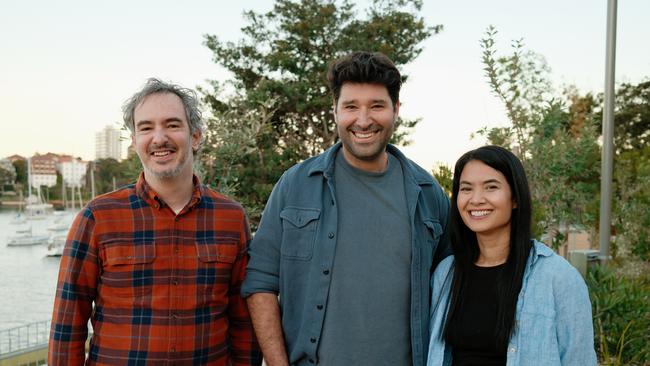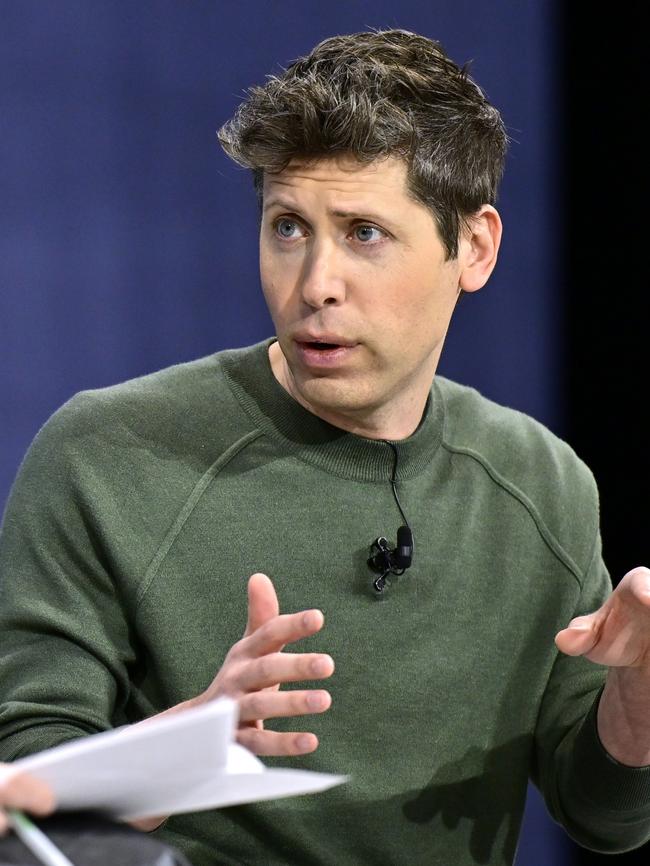Leonardo. AI boss reveals what’s more important than Sam Altman’s ‘superintelligence’ claims
Sam Altman says superintelligence is within grasp. But it’s not a topic the founder of Australia’s top homegrown AI model thinks about too deeply.

Sam Altman, chief executive of ChatGPT maker OpenAI says “superintelligence” — the AI that exceeds human intelligence — is a “few thousand days away”.
But, JJ Fiasson — the founder of Leonardo. AI, the company behind Australia’s homegrown AI model — says what’s more important is ensuring the technology “can do the tasks we want it to do, and how accurately it can do those”.
Superintelligence is a form of artificial general intelligence which surpasses the cognitive ability of humans and what Mr Altman said OpenAI was set up to achieve.

To accelerate the development of AI research in Australia — and ensure the technology lives up to its claims — Leonardo. Ai has partnered with University of Technology Sydney to create a new doctorate program.
Four different scholarships are available, with AGI not making the list of research topics. Instead, research areas include safety and bias in generative AI, efficient architectural designs for generative AI models and “deliberate forgetting” in AI training.
“Different people have different perspectives on what AGI means. I don’t think next year we’re going to see this emergent sentient consciousness or anything like that. For some people, that’s what AGI means,” Mr Fiasson said.
“But I think the LLMs (large language models) will continue to get better and better at various tasks. That trend, of course, will continue. There’s a question whether it’s true reasoning versus just a probabilistic kinds of outcomes that look like reason. It’s unclear.
“I don’t think we necessarily dwell too much on whether it’s truly reasoning. It’s more about can it do the tasks we want it to do and how accurately it can do those.”
What is clear is the global AI industry is expected to soar from $US184bn to $US826.7bn by the end of the decade, hence the need for Australia to keep pace to gain a slice of the boom.
And Leonardo. AI — which Canva acquired in July and has amassed 30 million users since its founding two years ago — has proven Australia has the capability and talent to take on the deeper pockets of Silicon Valley.
“You look at some of the big research labs, especially earlier on in our journey, they would have had more orders of magnitude than we did. And so it was about trying to find ways to do things sort of smarter with less compute resources.
“There’s kind of that creativity through constraint that can happen. When you have these limitations, you need to find innovative ways to approach problems. And so I think having those limitations can actually be a good thing in a lot of cases.

“If you have complete free range to do anything, you don’t necessarily think about how to be more efficient and ultimately, being more efficient can get you a better outcome. And that’s what we saw.”
Martin Bell, Leonardo’s AI research team lead, said the PhD program aimed to drive the local AI industry forward.
“Breaking into the competitive generative AI field has been difficult, specifically for Australian researchers who have faced challenges ranging from unclear career pathways, high costs and restricted education access.
“Our goal with UTS is to provide the next generation of talent with the funding, technology and industry expertise required to succeed while keeping Australia at the forefront of innovation and creativity with world-class AI research.”
Leonardo. Ai will fund all of the PhD program’s fees. There will be two domestic and two international scholarships. The international one comes with a $30,000 top up, the domestic scholarship has a $10,000 top up.
Dr Bell said four scholarships would be available initially but the program could potentially fund more and have an annual intake, saying “we don’t know where this training is going to go”.
“We’re putting money on the table to offer the highest level of support for those people because we want to find the best people as well,” said Dr Bell, who initially trained as an astrophysicist.
“And (we want) to move as fast as possible, because this is moving so quickly. If we went and applied for government funding for a year, this wouldn’t start till 2026.
“This is our investment and our opportunity to say ‘Hey, we really do want to grow this space in Sydney and there will have been some exceptional talent’.”
Fang Chen, distinguished professor and executive director at UTS Data Science Institute, said it was vital Australia’s tech industry backed research programs like the Leonardo. Ai partnership.
“UTS is renowned for its leading AI research, which drives impactful AI solutions with industry and government, advancing exceptional foundational research and innovation. The true value of the research is realised through meaningful partnerships with industry leaders like Leonardo.Ai, whose support helps push the boundaries of research while cultivating the next generation of GenAI talent,” Professor Chen said.
“The UTS Data Science Institute and Leonardo.Ai share a deep commitment to principles of excellence in technology: maximising impact, embracing agility, pursuing ambitious goals, and achieving success collaboratively. These values are unified by a shared mission to act responsibly and contribute meaningfully to societal advancement. This new PhD program exemplifies these principles in action, bringing together the strengths of academia and industry in a powerful partnership,”




To join the conversation, please log in. Don't have an account? Register
Join the conversation, you are commenting as Logout